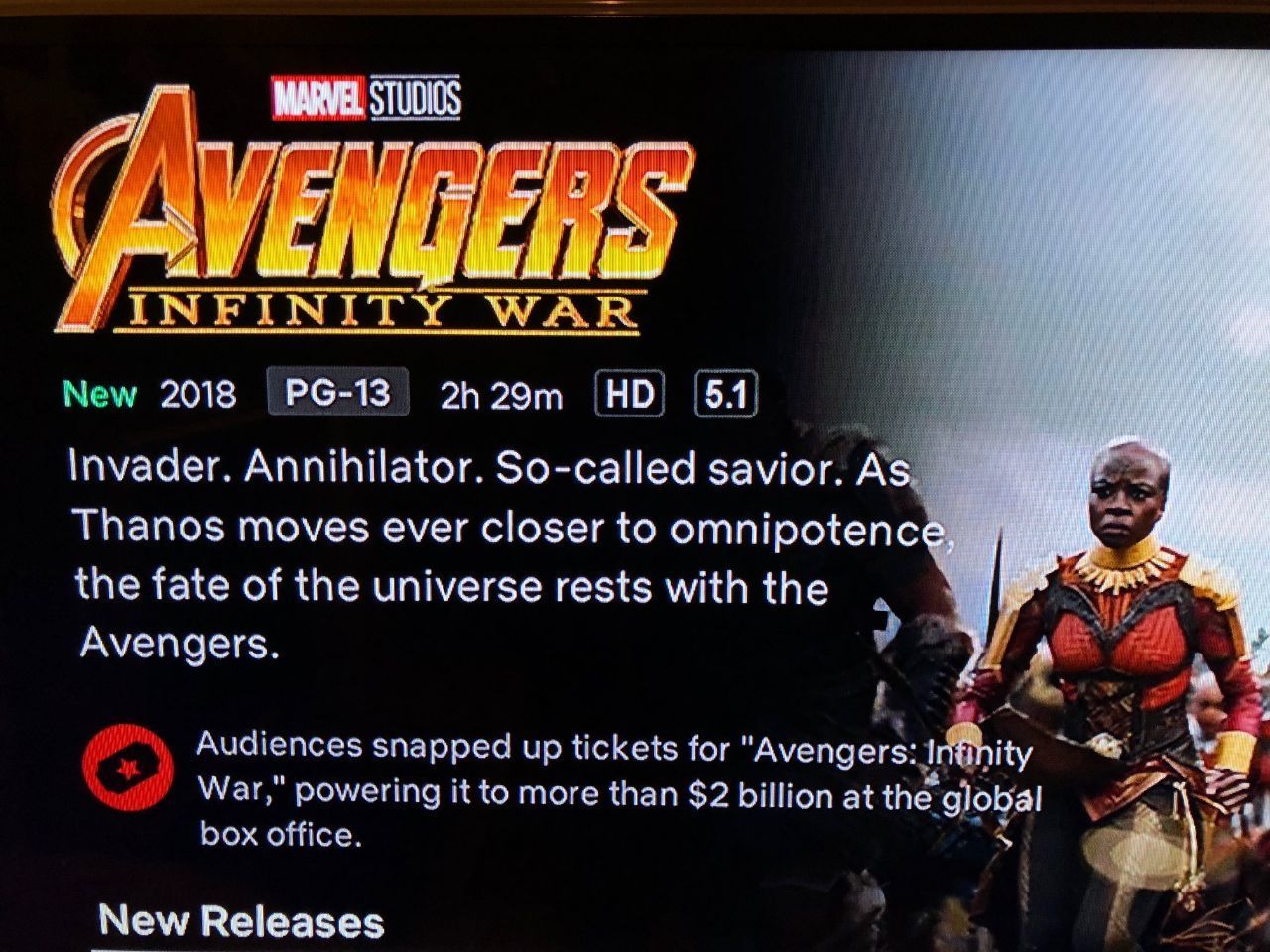After releasing Avengers: Infinity War on Christmas Day, Netflix has changed the movie's description following pushback from fans. After announcing that the movie would drop over a month ago, the release was heavily anticipated as one of the last MCU movies that will likely make it to the streaming service. It was reportedly an uneasy release, with many subscribers complaining that they were unable to find or access the film right away, and Netflix took to Twitter to help users find the movie. However, social media lit up once again with many fans taking issue with the synopsis' reference to the movie's central antagonist Thanos.
Netflix initially posted the following summation: "Superheroes amass to stop intergalactic sociopath Thanos from acquiring a full set of Infinity Stones and wiping out half of all life in the universe." A sociopath is characterized as someone who doesn't experience guilt or emotional recoil, and is inclined to act primarily for their own interests, with little to no consideration for the well-being of others. Strong cases could be made for plenty of MCU villains falling into this camp, such as Red Skull and Thor's sister Hela, but Thanos is a different story. He is, of course, the big bad of the MCU who enacts a massive genocide, but he does so for what he genuinely believes to be the sake of the continued survival of life across the universe. Moreover, his paternal role in Gamora's life and obvious grief he experiences after sacrificing her in order to obtain the Soul Stone negates the notion that he's a being who doesn't experience complex emotion. Netflix was quick to react.
Related: Thanos' Role In Avengers: Endgame Will Be Marvel's Biggest Surprise
Though some users may still see the original description on Netflix, the streaming service's new Avengers: Infinity War description encapsulates the controversial nature of Thanos, without referring to him as a sociopath. By keeping the focus on Thanos, rather than removing him from it altogether, Netflix clearly went out of their way to respond directly to the criticism instead of bypassing it. Check out the description below:
Interestingly enough, the term "So-called savior," as opposed to something like "Self-proclaimed savior," leaves more room for audiences - especially first-time viewers - to interpret Thanos in a more sympathetic light, rather than pigeonholing him as a remorseless dictator figure. Not so surprising, references to his decimating snap don't appear to be going away anytime soon, as per the tidbit of information regarding how well it performed at the global box office.
Considering instances like the tweet storm NASA received about saving Tony Stark, it's not surprising that fan outcry would be so fortified. For many, the fragments of Thanos' compassion and capacity to love are crucial to what drives the emotional impact of Avengers: Infinity War. Not making Thanos a literal sociopath is what keeps the audience hanging on for the hope of his redemption, which is ultimately more interesting than waiting for him to be defeated. For example, Puella Magi Madoka Magica's main antagonist Kyubey similarly justifies sacrificing human lives for sake of all life across the universe. However, since his alien race doesn't experience emotions of any kind, the character's complexity as a villain decelerates following that reveal. As for what's next for Thanos, fans are no doubt waiting with bated breath for Avengers: Endgame.




